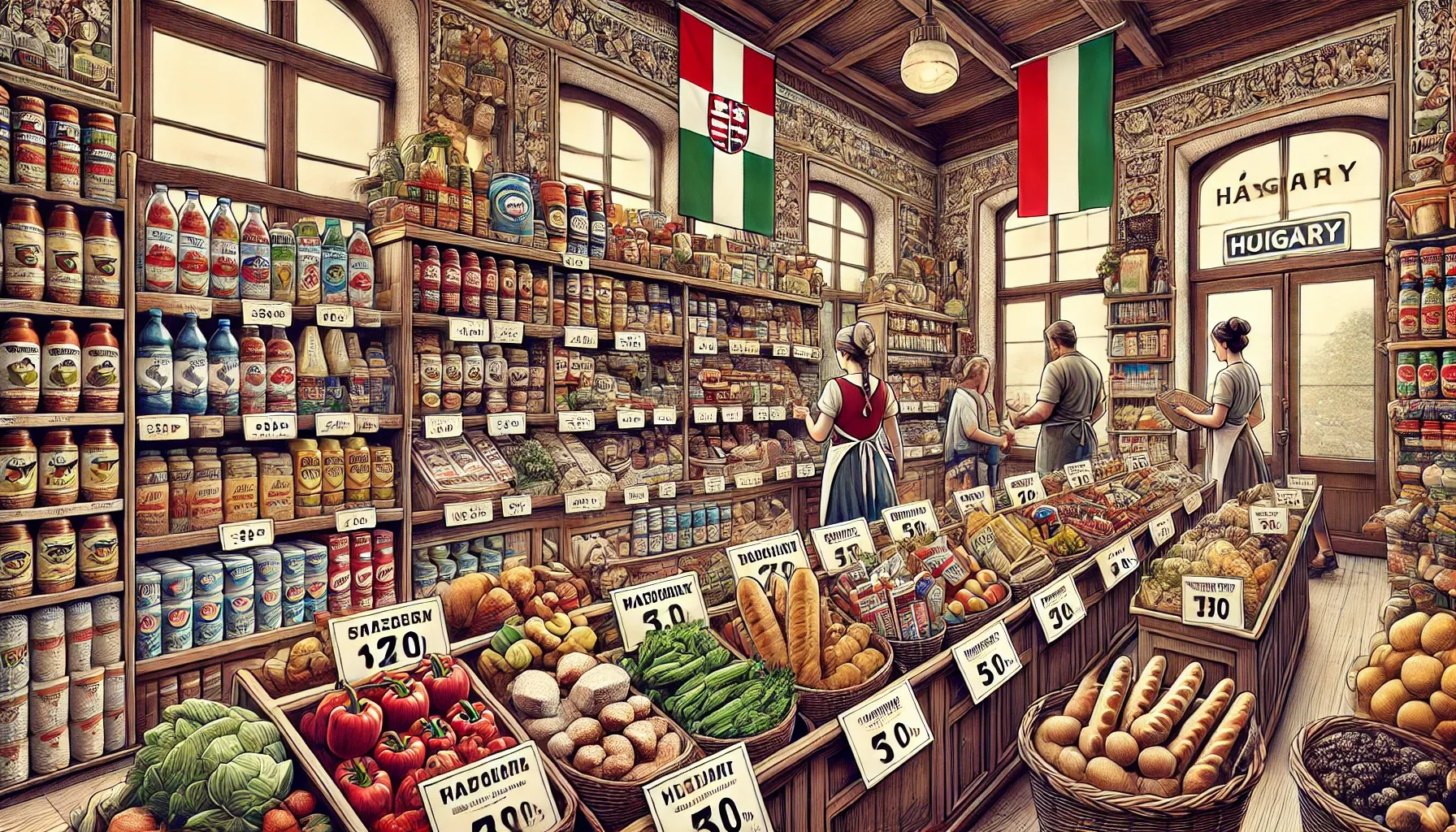Life in Hungary: cost of living, healthcare, education

- Hungary: the perfect place for a family vacation
- Hungary: prices for fuel, food, education, and healthcare
Hungary: the perfect place for a family vacation
Hungary is a wonderful place for a family vacation, especially popular among residents of various Central European countries. The spa resorts in Hungary attract visitors with their favorable climate and well-developed tourist infrastructure. The cost of living here is lower than in many other European countries, making it particularly appealing.
Climate and Geography
The climate in this country is mild and moderately continental, with a short winter, a long spring and autumn, and a hot summer. Hungary is famous for its magnificent nature, reminiscent of the southern regions of Russia. Its geographical location makes it the center of Europe, providing easy access from Germany and Austria, as well as straightforward delivery from Russia.
Living expenses
The subsistence minimum for a family of two is between 800 and 1,000 euros per month, which will provide everything you need. However, you will have to spend more for additional entertainment. Utilities will cost about 35,000 forints (4,600 rubles) on average for a one-room apartment of 40 square meters in Budapest. In a private house, such costs will be about 50,000 HUF per month (about 7,000 rubles).
Transport
The prices for transportation will also pleasantly surprise you: a metro ride costs 300 forints (42 rubles), while a single ticket for a bus, tram, or trolleybus ranges from 350 to 450 forints (49-63 rubles). A two-week ticket for all types of public transport costs 7,500 forints (1,060 rubles). A taxi in Budapest starts at 1.2 euros (48 rubles) for the initial fare and 1 euro (40 rubles) per kilometer. A trip from the airport to the city center will cost about 20-25 euros (800-1,000 rubles). The roads in Hungary are of good quality.
Conclusion
Hungary is a wonderful place for a family vacation, with stunning nature, affordable prices, and plenty of opportunities for relaxation and entertainment.
Fuel prices in Hungary
In January 2013, the price of gasoline in Hungary ranged from 415 to 420 forints (57 rubles) per liter, and diesel fuel cost about the same. Compared to neighboring European countries, gasoline in Hungary is considered more expensive.
Prices for groceries
According to Russians who permanently reside in Hungary, everyday products and goods in stores there are cheaper than in Russia. They note that prices for food in Hungarian stores are lower and that in farmers' markets, agricultural products are also organic, with minimal prices for vegetables and fruits.
- Meat, 1 kg: about 1,100 - 1,500 forints (150 - 210 rubles)
- Chicken drumsticks, 1 kg: 650 forints (90 rubles)
- Fresh frozen fish, 1 kg: 789 - 1,500 forints (110 - 210 rubles)
- Milk, 1 liter: 200 - 250 (27 - 34 rubles)
- Eggs, 1 dozen: 269 forints (38 rubles)
- Pasta, 1 kg: 350 - 500 forints (48 - 70 rubles)
- Bread, 300 grams: 179 forints (25 rubles)
- Potatoes, 1 kg: 120 - 160 forints (16 - 22 rubles)
- Local beer, 0.5 liters: 180 - 200 forints (25 - 28 rubles)
- A bottle of vodka: 1,500 forints (210 rubles)
- Marlboro cigarettes, 1 pack: 700 - 750 forints (95 - 100 rubles)
Maintaining communication and emergency medical assistance
The average cost of 1 minute of mobile phone conversation within the country is 20 - 50 forints (2.7 - 7 rubles). Emergency medical assistance in Hungary is free for everyone. The level of medical care is considered high, but it is not cheap. Health insurance with an annual contract costs on average 1,200 euros.
Thermal spas
Hungary is famous for its numerous thermal resorts, and there are hot springs in Budapest itself.
29 January
9 October 2024
9 October 2024
9 October 2024


Sale flat in Saint-Aubin-les-Elbeuf with city view 85 847 $

2 Bedrooms

1 Bathroom

68 м²


Studying in Hungary
One of the few drawbacks of living in Hungary is the challenging Hungarian language, which can be difficult to learn. However, there are good language schools in the country where you can study it. Higher education in Hungary in English based on a Russian high school diploma varies depending on the university's status and the chosen faculty. Tuition fees at Hungarian universities start from 3,000 euros per academic year. Hungarian diplomas are recognized by all Eurozone countries, and in the USA and Canada, they don't even require validation.

Hungary: the perfect place for vacation and living
Hungary is very popular among residents of Central Europe as an ideal place for a relaxing family vacation. Citizens of Austria, Germany, Switzerland and other countries gladly come to relax at the numerous balneological resorts. This is facilitated not only by the proximity of these countries, but also by favorable climatic conditions, developed tourist infrastructure and low cost of living.
Climate and Nature
The climate in Hungary is mild, moderately continental. Winters are short with snow, while spring and autumn are the longest seasons, and summers are hot. Hungary has magnificent nature that resembles the southern regions of Russia.
Cost of living and utilities
The rates for the minimum subsistence, housing maintenance, transportation costs, food prices, etc. have been provided.
Products, everyday goods, services
Russians living permanently in Hungary note that the prices of Hungarian stores for foodstuffs are lower than in Russia. In addition, goods in farm stores are also ecologically clean, and prices for fruit and vegetables are kopecks.
Medical assistance and resorts
Emergency medical care in Hungary is free for everyone. The level of medical service is considered high, but it is not cheap. Health insurance with an annual contract costs on average 1,200 euros.
Education
One of the few drawbacks of living in Hungary is the challenging Hungarian language, which is unlike other European languages. However, there are good language schools in the country where you can learn it.
Comment
Popular Posts
9 October 2024
3502
9 October 2024
283
Popular Offers


Subscribe to the newsletter from Hatamatata.com!
Subscribe to the newsletter from Hatamatata.com!
I agree to the processing of personal data and confidentiality rules of Hatamatata




